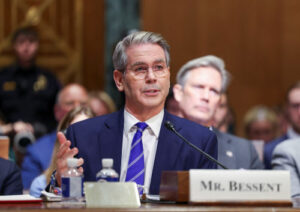By Jody Godoy
(Reuters) – The U.S. Federal Trade Commission adopted a final rule on Wednesday requiring businesses to make it as easy to cancel subscriptions and memberships as it is to sign up, in the agency’s last major rulemaking before the Nov. 5 election.
The “click to cancel” rule requires retailers, gyms and other businesses to get consumers’ consent for subscriptions, auto-renewals and free trials that convert to paid memberships. The cancellation method must be “at least as easy to use” as the sign up process.
FTC Chair Lina Khan said in an interview that the rule is an overdue response to a rising number of consumer complaints about situations in which it is “extraordinarily easy to sign up for a subscription, but absurdly difficult to cancel.”
“Companies shouldn’t be able to trick you into paying for subscriptions that you don’t want,” Khan said.
The rule prohibits requiring consumers who signed up through an app or a website to go through a chat bot or agent to cancel. For in-person signups, companies must provide means to cancel by phone or online.
“The pandemic brought to the surface just how businesses are making people jump through endless hoops,” Khan said. Requiring in-person cancellations while the businesses themselves were closed “really highlighted the absurdity of these practices,” she said.
After proposing the rule last year, the FTC received thousands of comments from consumers who had trouble canceling services, and advocates who criticized practices at gym chain Planet Fitness, meal kit company HelloFresh, Rihanna’s Savage X Fenty lingerie shop, and others.
Existing laws such as the Restore Online Shoppers’ Confidence Act of 2010, which the FTC used to sue Amazon over its Prime service cancellation practices, leave gaps, the FTC said.
Trade groups representing car washes, retailers, news publishers, TV providers and other businesses had called parts of the proposal burdensome and unnecessary.
The FTC dropped proposals that businesses periodically remind consumers about recurring charges, and let consumers trying to cancel a service opt out of seeing discounts and other last-ditch efforts to keep them.
The rule passed 3-2, with the FTC’s two Republican commissioners voting against it.
Three weeks before Election Day, the rule is among the final pieces of U.S. President Joe Biden’s broad effort to tackle “junk fees.”
Vice President Kamala Harris, the Democratic candidate for the White House, highlighted the “click to cancel” proposal last month as an example of the issues she will prioritize if elected.
Khan would not comment on whether she has discussed a role in a potential Harris administration, nor on remarks by some billionaire supporters of Harris who have said Khan should be replaced.
“People just want an economy that’s fair and honest. That’s what our focus is,” she said.
(Reporting by Jody Godoy in New York; Editing by Richard Chang)


